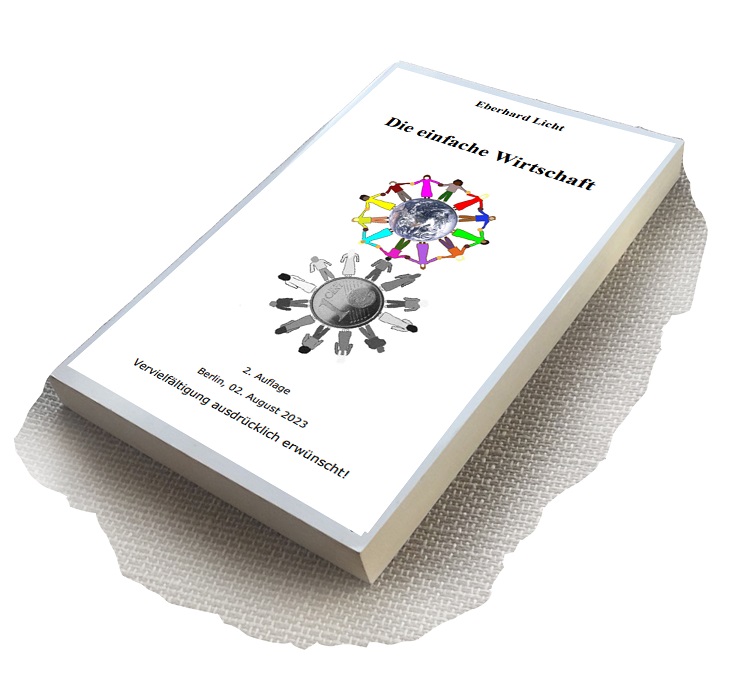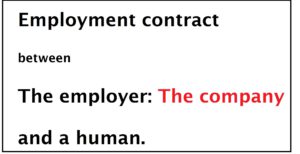Wie hat das Jahr 2024 begonnen? Leere Staatskassen trotz Zunahme des Superreichtums, Aufrüstung, Überschwemmungen nie gekannten Ausmaßes. Es sind alles Dinge, die irgendwie miteinander zusammenhängen.
Leider wird die Ursache von der Politik nicht angetastet und vertuscht. Schuld daran ist der Markt, diese Symbiose aus Wirtschafts- und Finanzsystem. Diese Symbiose hat uns in den letzten 250 Jahren zu Wohlstand geführt aber sie muss jetzt beendet werden, weil der Kollaps droht, wenn wir so weiterwirtschaften. Seit 50 Jahren suchen Politiker und Ökonomen nach Alternativen für das unendliche Wachstum, jedoch wissen wir, dass es nicht möglich ist, in dieses System einzugreifen. Hierfür haben wir doch auch genug Beweise, denn es zeichnet sich keine Entspannung ab.
Am Beispiel des Klimawandels lässt sich der eigentliche Widerspruch am besten erklären. Die Erwärmung der Meere, die immer höhere Niederschlagsmengen verursacht, ist darauf zurückzuführen, dass der Kohlendioxidgehalt der Atmosphäre durch die Emissionen, vor allem aus Industrie und Verkehr, von Jahr zu Jahr weiter zunimmt.
Eigentlich müssten wir diese Emissionen sofort stoppen, d.h. die Wirtschaft müsste schnellstens auf vielleicht 70 Prozent heruntergefahren werden. Wir Menschen würden das ohne weiteres ertragen können, unser Lebensstandard würde wieder auf den Stand von vielleicht 1980 zurückfallen aber schließlich hatten wir damals auch schon das Gefühl von Wohlstand. Alle technischen Errungenschaften wie Internet oder Satellitennavigation würden wir natürlich behalten.
In diesem Falle jedoch würde das Finanzsystem in Panik geraten, wie bei jedem schon viel kleineren Anlass. Das Finanzsystem gibt der Wirtschaft Kredite und erwartet, dass diese Kredite bedient werden. Wenn das Wirtschaftswachstum nachlassen würde, könnte die Wirtschaft diese Finanzleistungen nicht mehr in vollem Maße erfüllen.
Das Finanzsystem würde der Wirtschaft dann keine Finanzmittel mehr zur Verfügung stellen und es käme zu einer Wirtschaftskrise unvorstellbaren Ausmaßes. Das wollen natürlich die Politiker um jeden Preis vermeiden und deshalb machen wir unbeirrt weiter mit dem Versuch, das Wachstum fortzusetzen. Das Problem ist natürlich auch, dass wir es als Verzicht auf Wohlstand empfinden würden, wenn wir unseren Konsum reduzieren müssten.
Die Aufgabe der Wirtschaft
Eigentlich sollte es ja so sein, dass die Wirtschaft dazu da ist, das zu produzieren, was wir Menschen brauchen. Wenn wir einmal viel brauchen, weil viele Menschen geboren wurden, dann wird mehr produziert und wenn wir sehen, dass wir uns wegen des Erhalts unserer Erde einschränken müssen, dann würde einfach weniger produziert werden. Dies wäre der Idealfall.
Meine Überlegungen gehen in die folgende Richtung: Alles, was wir Menschen benötigen, die Rohstoffe und die Energie, die in der Wirtschaft gebraucht werden, sind ja eigentlich ursprünglich Geschenke der Erde und der Sonne. Wenn wir das Wasser aus dem Brunnen schöpfen, müssen wir der Erde nichts dafür bezahlen. Ebenso ist es mit der Kohle, dem Erz oder dem Korn. Read More
Stell dir vor, alle Menschen würden darüber hinaus noch freiwillig arbeiten. Dann könnten all die produzierten Güter einfach als Geschenke weggeben werden. Dann müsste es kein Wachstum geben, jeder würde sich nur das nehmen, was er braucht, um ein glückliches und zufriedenes Leben führen zu können.Read More Weil kein Interesse daran besteht, mehr zu verschenken als nötig, gäbe es keine Werbung, keine Rabattaktionen und keine geplante Obsoleszenz. Kein Mensch wäre ausgeschlossen.
Ein Beispiel, welches seit vielen Jahren auf diese Weise funktioniert, sind die Volksküchen, die „Küchen für alle“ oder „Küfas“, bei denen die „Rohstoffe“ kostenlos aus den Supermarktcontainern kommen.Read More
Freiwillige bereiten das Essen zu, welches dann einfach verteilt werden kann. Diejenigen, die sich nur wenig nehmen, weil sie wenig Hunger haben, empfinden das nicht als Verzicht oder Benachteiligung. Wenn hingegen das Essen zu einem festen Preis abgegeben würde, wie es in der heutigen Wirtschaft üblich ist, dann würde jeder darauf bestehen, auch die entsprechende Menge zu bekommen. Das ist der grundlegende Unterschied. Wenn wenig Essen gebraucht wird, dann wird einfach wenig gekocht.
Die Lösung der globalen Probleme
Wenn also alle Menschen auf der Welt freiwillig arbeiten würden, würden wir die Waren im Supermarkt geschenkt bekommen und dafür schenken wir am nächsten Tag unsere Arbeit an andere Menschen zurück. Das Eigentum aller Menschen müsste dafür überhaupt nicht angetastet werden, es wäre demzufolge eine vollkommen friedliche Revolution.
Das Wichtigste dabei ist auch, dass hierfür nicht in das oben beschriebene System des Marktes eingegriffen werden muss, die Veränderung würde quasi von außen kommen. Das Ergebnis wäre, dass das Finanzsystem nicht mehr benötigt wird und es sich einfach auflösen könnte, denn es schafft keinerlei materielle Werte. Die frei werdenden Immobilien würden zur Linderung der Wohnungsnot beitragen und die Beschäftigten gehen in die Wirtschaft, sodass dann wahrscheinlich eine Zwei- oder Dreitagewoche ausreicht.
Für die Umsetzung dieses Programmes müssten bloß alle Menschen weltweit gefragt werden: „Bist du bereit, freiwillig zu arbeiten, wenn du alles, was du für ein zufriedenes und glückliches Leben brauchst, geschenkt bekommst?“
Weil alle Voraussetzungen dazu vorhanden sind und keine anderen Vorbereitungen nötig wären, könnte dieses Prinzip eigentlich jederzeit umgesetzt werden. Auch in diesem Jahr wäre es schon möglich.
Was jetzt dringend nötig wäre, ist die Verbreitung dieser Idee und der Beginn der Diskussion darüber.
Das ist meine private Website.
Eberhard Licht
Kontakt: post@LetUsBe.One

